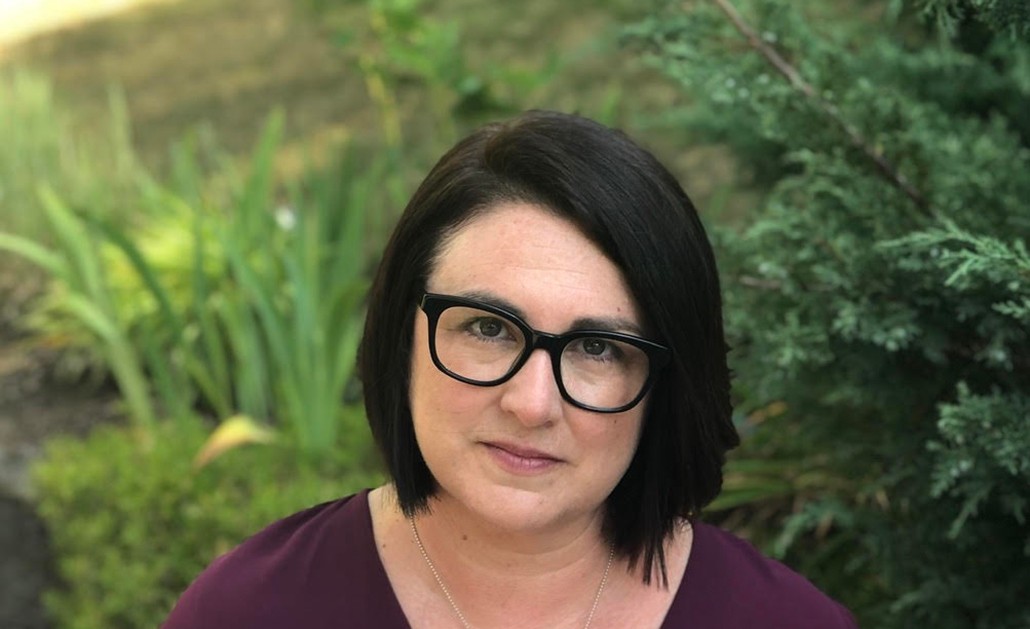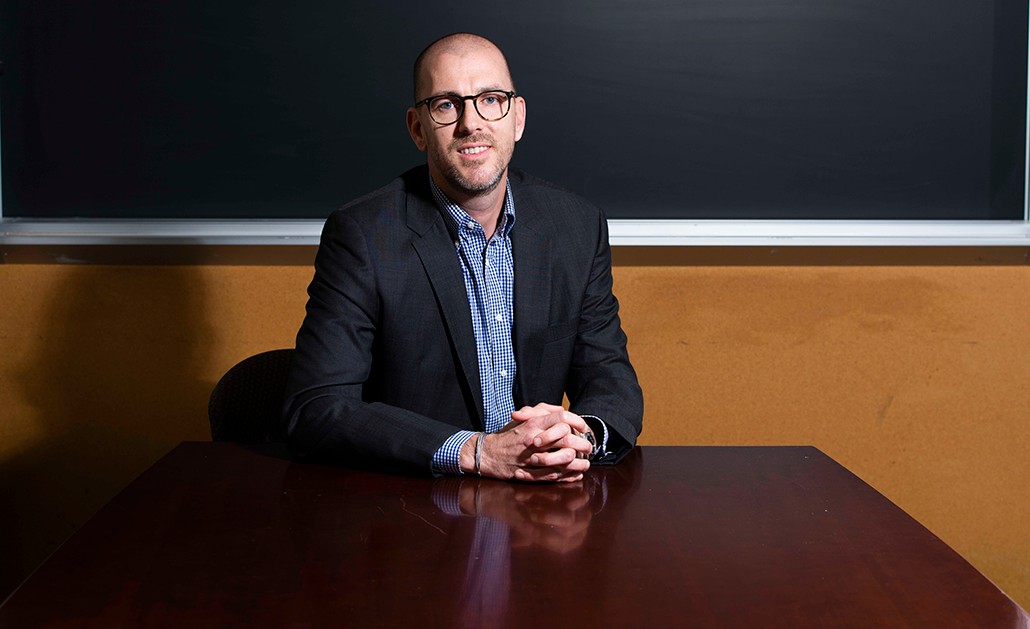
The new faculty bring a combined total of more than 60 years of experience to teaching, research, and clinical practice. Photo by iStock.
Four professors have joined the faculty in the Boston College School of Social Work this summer, bringing a combined total of more than 60 years of experience to teaching, research, and clinical practice.
“With the addition of these four new members to our faculty, we have strengthened, even more, our place as a national and global leader in pioneering social work education, research, scholarship, and practice,” says Gautam N. Yadama, dean of the School of Social Work.
Kathleen Flinton, a newly hired assistant professor of practice, provides psychotherapy to political dissidents who have survived torture and struggled to remake their lives in the United States.
Studies show that torture can re-wire the circuitry in the brain, leaving victims with long-lasting psychological scars such as post-traumatic stress disorder, anxiety, and depression.
“I take a holistic approach to help my clients recover and thrive again,” says Flinton, who has worked with survivors of trauma for more than 20 years. “I help support them as they regain professional standing, develop relationships, and work through the spiritual impact of their trauma.”

Kathleen Flinton. Courtesy photo.
Flinton plans to teach two courses this fall—”Adult Psychological Trauma: Assessment and Treatment” and “The Impact on Traumatic Victimization on Child and Adolescent Development.” She says her teaching philosophy centers on the belief that students must understand both how and why they employ particular strategies to help clients process trauma.
“I want to share with them my fascination with how the brain works and how brilliantly our bodies are designed to continue to survive after experiencing trauma,” says Flinton. “I want to help them look at individuals to see how they’re coping and provide the scaffolding to support the recovery process.”
Christopher Salas-Wright, a newly hired professor who studies the social, cultural, and economic challenges that face immigrants, wants to improve the lives of migrants who have been forced to leave their homes, their languages, and their cultures.
Over the next three years, Salas-Wright plans to follow a cohort of 1,000 parents and children who moved to the mainland in the wake of Hurricane Maria. He says the goal of the project is to develop strategies that social workers, civic leaders, and educators can use to help migrants make the most of their new lives, especially those who have increased their use of alcohol in response to trauma caused by the forced displacement from their homes.
“The hope is that this will be a unique study of Hurricane Maria survivors in the United States,” says Salas-Wright, whose research project is funded by the National Institute on Minority Health and Health Disparities. “I’m unaware of any other study of its scope that will have the chance to follow people to understand how their experiences unfold over time.”

Christopher Salas-Wright. Photo by Katherine Taylor.
His newest study, for which he is seeking funding, will focus on Venezuelan migrants who have fled from a political, social, and economic crisis in their country. More than 1 million migrants have crossed over into Colombia to escape widespread violence, hyperinflation, and a healthcare system on the verge of collapse.
The primary objective of this research project mirrors the goal of his project that took shape in the aftermath of Hurricane Maria: To develop long-term solutions to help migrants who have been forced to leave their old lives behind.
“It’s so hard under the best conditions to put together a good life,” says Salas-Wright. “We need to figure out what we can do as social workers to try to help communities thrive.”
Maggi Price, a newly hired assistant professor, created the Affirm Lab in 2018 to improve mental health therapy for youth who are stigmatized because of their race, gender, and sexual identity.
She recently teamed up with the Yale Medicine Gender Program to analyze clinical interviews and survey data to better understand the experiences transgender adolescents have in therapy.
Price discovered that some transgender youth had positive experiences, citing cases in which therapists provided educational resources to their clients and referred them to endocrinologists who helped them develop the physical characteristics of their affirmed gender.

Maggi Price. Courtesy photo.
But she also found instances in which therapists lacked knowledge of the particular challenges that face transgender youth, refused to provide letters of support for medical treatments such as hormone replacement therapy, and used incorrect pronouns to identify their clients.
“That’s painful and invalidating,” says Price, a psychologist who received her doctorate in counseling psychology from Boston College in 2018. “It’s the type of behavior that you don’t want in a therapy session where you’re already asked to be vulnerable and talk about the negative experiences you’ve had.”
Price says her newest study will examine whether laws and policies that inhibit the rights and well-being of transgender youth increase their risk of depression. She plans to share her findings with lawmakers and social workers, especially those who work in states in which people report high rates of transphobia. Bloomberg Law reported in 2019 that seven states had policies in place that banned Medicaid coverage for surgeries that change the sexual characteristics of people to better reflect their gender identity.
“Training in gender-affirming care is important for all social workers. But it may be especially important for clinicians working in states with high levels of transphobia to learn how to address negative gender-based experiences in therapy,” says Price, whose study will include the analysis of survey data from transgender youth published by the Centers for Disease Control and Prevention in 2019. “In the future, it will be important for researchers and clinicians to determine what treatment augmentations are most important for social workers to implement in those places.”
Catherine Taylor, a newly hired professor who evaluates the efficacy of strategies designed to prevent child abuse, wants to reshape the way parents discipline their kids and change attitudes toward corporal punishment.
The vast majority of Americans believe that it’s sometimes necessary to discipline a child with a hard spanking. But research shows that kids who get spanked are more likely to develop aggressive behaviors and suffer from mental health problems, including anxiety, depression, and drug abuse.

Catherine Taylor. Courtesy photo.
Taylor recently recruited more than 800 mothers in New Orleans to participate in a study to test the ability of two strategies—Triple P-Level 2 and Play Nicely—to reduce the rates at which parents use corporal punishment to discipline their kids and increase the use of disciplinary techniques that promote the development of healthy children.
“We’re really hoping to see shifts in behaviors and attitudes,” says Taylor, a researcher with social work and public health training whose study is funded by the Eunice Kennedy Shriver National Institute of Child Health and Human Development. “The best case scenario is that parents will hit their children less, have less supportive attitudes toward hitting their children, and use other types of discipline strategies with their kids.”
Taylor says the results of the study will determine whether she will work to implement these strategies in pediatric clinics and social service centers that cater to parents and their kids. The moms she recruited in New Orleans, for example, had been visiting an agency to receive a federal nutrition program for women, infants, and children known as WIC.
“Having positive attitudes toward hitting children and believing that hitting is necessary for good discipline has stayed remarkably strong over many decades,” says Taylor. “If behaviors and attitudes change as a result of these interventions, a good next step would be to consider implementing these strategies in real world settings in pediatric clinics in collaboration with doctors and other healthcare providers.”


